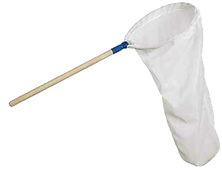Meeting February 23rd: Insect Decline in the Anthropocene: The Collapse of Nature (co-hosted by CSMNH)
- ctentsoc
- Feb 18, 2024
- 2 min read
We have a regular meeting Friday, February 23, 2024, at the Biology Physics Building Room 130 at the University of Connecticut in Storrs. The date for our meeting was delayed by one week so that we could hold it as a joint meeting with the CT State Museum of Natural History (CSMNH).
We have had an invitation from Katrina Menard and Erin Kuprewicz to have a tour of the collections prior to David Wagner’s presentation. There is room for 10 people to be guided through the collections in each of two groups, with one cohort starting at 6 p.m., and the second at 6:45, with the duration for each tour group being 30 minutes. The tours will conclude before our business meeting starts.
We gather at 6:30 p.m. for refreshments, the business meeting starts at 7:30, and the meeting's program starts at 8 p.m.
Title: Insect Decline in the Anthropocene: The Collapse of Nature
Abstract: Wagner will provide an update on global insect decline matters, emphasizing research that has
surfaced in the last two years, and identity important misunderstandings and current data gaps in
our understanding of insect declines. The last quarter of his presentation will delve into solutions
that promote insect biodiversity, with the intent of having the talk open into an audience
discussion of important actions we can embrace to help the little things that run the world.
Biosketch:
Dr. David L. Wagner is a professor of ecology and evolutionary biology with core research
interests in the biosystematics of Lepidoptera, insect decline, and invertebrate conservation, but
he has also published on bees, dragonflies, insect behavior, insect ecology, and insect taxonomy.
He has authored 10 books and 225 scientific papers. Much of his current focus is on the
consequences of global insect declines, and especially the role of drought as a primary driver of
faunal change across aridlands of the American Southwest and the tropics. While his core
research interests are in phylogenetics and taxonomy of Lepidoptera, he has many ecological
papers and collaborations that anchor to his four decades of hostplant data for caterpillars. He
and coauthors have used this insect-plant database to address matters of ecological
specialization, latitudinal diversity gradients, and species packing. Wagner has several
publications on the importance of early successional habitats to plants, insects, and other wildlife
in forested landscapes, as well as several studies of various imperiled insect species.
Recent Posts
See AllWilliam Tangredi, University of Connecticut, “Oak as a keystone taxon: Kingpins of temperate zone caterpillar and other insect herbivore...
Our January meeting will be held on Friday, Jan. 17, in the Jones Auditorium at the Connecticut Agricultural Experiment Station in New...
Hi everyone! For our November meeting on Friday, November 15th, we will be having tag-team presentations by Dr. Joseph Coolon and his...















Comments